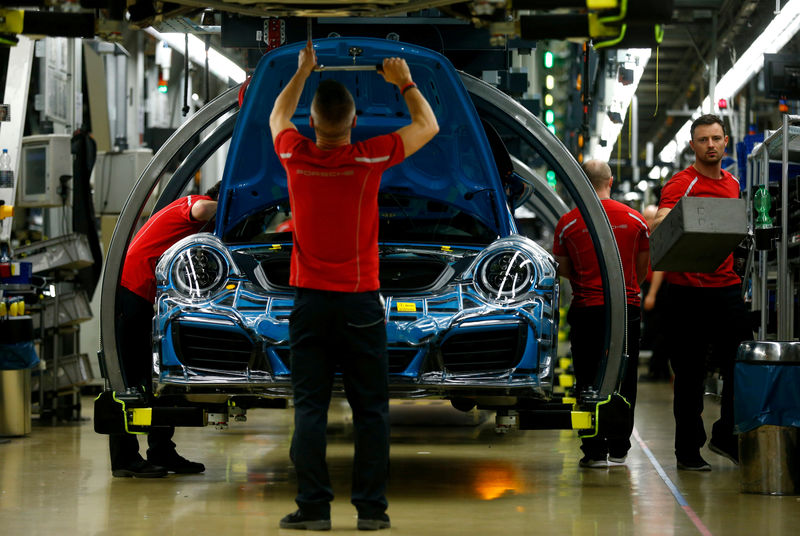BERLIN (Reuters) - The panel of economic advisers to the German government slightly raised its growth forecast for Europe's largest economy on Wednesday but warned that a spiral of protectionist measures could damage the robust upswing.
The five economists who advise the German government on policy said they expected gross domestic product to grow by 2.3 percent this year, up 0.1 percentage points from their previous forecast in November.
For 2019, they forecast 1.8 percent economic growth.
The Ifo economic institute was even more optimistic, with its researchers confirming their forecasts -- originally made in December -- of 2.6 percent German growth this year and 2.1 percent in 2019.
"Huge income tax reductions in the USA and the robust economic upturn in the euro zone are boosting demand for German goods and services," Ifo said on Wednesday.
The panel of economic advisors said trade would play a slightly bigger role as a growth driver than previously expected due to a booming world economy. The European Central Bank's loose monetary policy and the government's plans to increase state spending will provide additional stimulus, they added.
But the advisors also warned that the German economy was facing increased risks from abroad, including the Italian election result, uncertainty regarding the outcome of negotiations on Britain's looming departure from the European Union and planned U.S. import tariffs.
"A spiral of protectionist measures would have a clear negative impact on the global economy and the German economy," they said.
On the domestic front, German companies are facing increased capacity constraints and labor shortages are likely to limit future growth, the panel said.
In an interview with Stern magazine, German Finance Minister Olaf Scholz warned U.S. President Donald Trump's administration against using "instruments of the 19th century", saying Trump talked about fairness but really meant protectionism.
"Protectionism hurts everyone -- even those who start it," Scholz said of the United States, which is planning tariffs on imported steel and aluminum.
Ifo said the debate about introducing or raising tariffs in transatlantic trade, along with the euro's appreciation, was dampening morale among companies.
The coalition government of Chancellor Angela Merkel's conservative bloc and the Social Democrats -- sworn in earlier this month -- is having a temporary stimulative effect because it has agreed to boost state spending, particularly in the coming year, Ifo said.
Ifo said the government's tax reform plans were disappointing, however, and an answer was still needed to a significant reduction in corporate tax rates in the United States as well as in France and Britain.
The German economy grew by 2.2 percent in 2017 which translated into a calendar-adjusted 2.5 percent -- the strongest growth rate since 2011.
